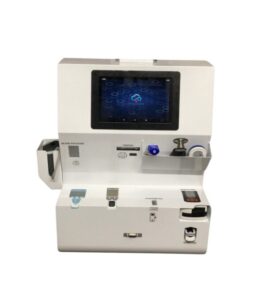4 Steps Businesses Can Take to Upgrade Their Payment Process Procedures
4 min readIt’s no secret that the payment process is a critical part of any business. After all, it’s how businesses get paid for the products and services they provide. Upgrading your payment process procedures can be a daunting task, but it’s one that’s worth undertaking. Here are four steps to help you get started.

1) Find the right point of sale system
In order to take payments, you’ll need a point of sale (POS) system. This is the hardware and software that businesses use to accept and process payments. When choosing a POS system, it’s important to find one that’s compatible with the type of business you have, as well as your budget. You can do your research online and compare systems or do the same with this site and choose the option that seems best to you. Plus, don’t forget to factor in the cost of hardware, such as terminals and PIN pads.
Additionally, you’ll want to make sure that the system you choose can accept the types of payments you want to take, such as credit and debit cards, Apple Pay, Google Pay, etc. Plus, you’ll want to make sure that it’s able to integrate with your accounting software so that your books are always up-to-date.
To help ensure this compatibility, you should always consult with your accountant and/or bookkeeper before making a final decision. Don’t forget that they know your business best and can offer valuable insights.
2) Set up a merchant account
If you don’t already have one, you’ll need to set up a merchant account in order to accept credit and debit card payments. This is a special type of bank account that’s used to process these types of payments. You can typically set up a merchant account through your bank or a third-party provider.
When choosing a merchant account provider, you’ll want to compare features and fees. Some providers charge monthly fees while others charge per-transaction fees. You’ll also want to make sure that they offer the features you need, such as fraud protection and payment gateway services.
For example, if you’re a small business, you might want to consider a provider which offers easy-to-use POS systems and merchant accounts with no monthly fees. On the other hand, if you’re a larger business, you might want to consider a provider which offers more robust features and services.
3) Choose the right payment gateway
Your payment gateway is what actually processes the payments you take. It’s the link between your POS system and your merchant account. When choosing a payment gateway, you’ll want to make sure that it’s compatible with your POS system and merchant account. You’ll also want to compare features and fees. Some payment gateways charge monthly fees while others charge per-transaction fees.
Additionally, you’ll want to consider whether you need a payment gateway that can accept international payments. If you plan on doing business internationally, you’ll need a payment gateway that can process foreign currencies.
Also, keep in mind that some payment gateways offer more features than others. If you need advanced features like recurring billing or fraud prevention, you’ll want to make sure that your chosen payment gateway offers those features.
Plus, you’ll want to read reviews of different payment gateways before making a decision. This will give you a better idea of which ones are reliable and which ones have good customer support.
4) Implement security measures
When setting up your payment process, you’ll want to make sure that you implement security measures to protect your business and your customers. This includes things like SSL encryption and PCI compliance.
SSL encryption is a type of security that encrypts data as it’s being transferred from one computer to another. This makes it very difficult for hackers to intercept and read the data. PCI compliance is a set of security standards that businesses must follow in order to accept credit and debit card payments.
You can typically implement these security measures by signing up for a service like Verisign or Symantec. These companies will provide you with the necessary software and services to keep your payment process secure. Plus, they’ll also help you to ensure that your POS system and payment gateway are compliant with PCI standards.

When setting up your payment process, it’s important to make sure that you implement security measures to protect your business and your customers. This includes things like SSL encryption and PCI compliance. By signing up for a service you can ensure that your payment process is as secure as possible. Additionally, these companies will help you to keep your POS system and payment gateway compliant with PCI standards.






